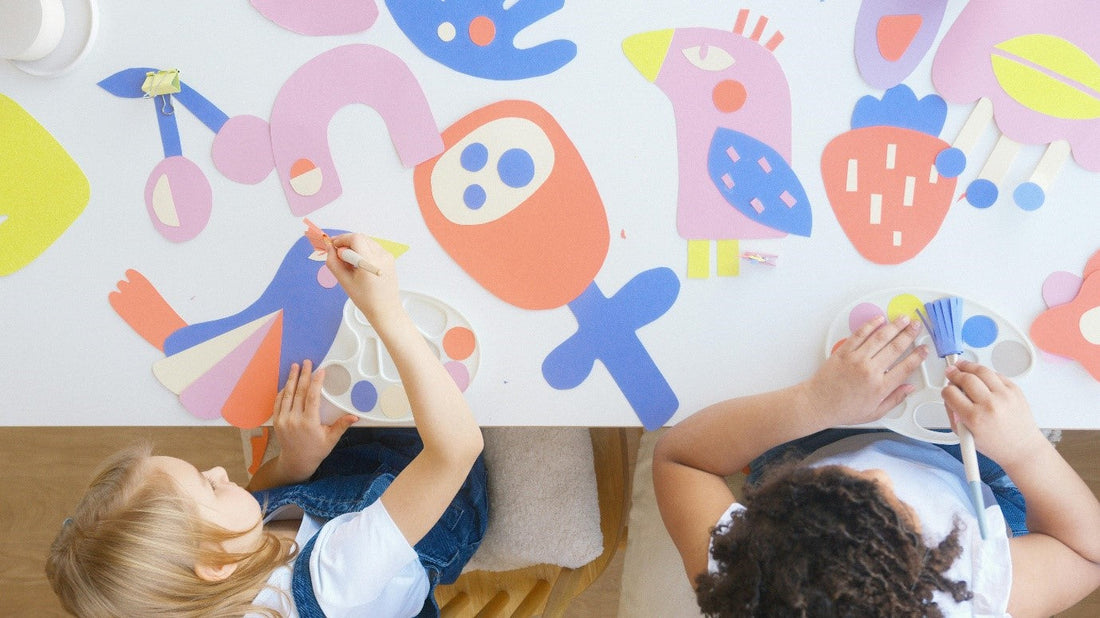In today's fast-paced world, children are increasingly drawn to screens, whether it's for watching TV, playing video games, or using tablets. While technology has its benefits, it's crucial to encourage kids to engage in physical and imaginative play. Play is vital for a child's development, promoting physical health, creativity, social skills, and emotional well-being. Here are some strategies to help encourage children to play more.
Create a Play-Friendly Environment
A play-friendly environment is essential to stimulate a child's interest in play. This can be achieved by:
- Designating a Play Area: Create a safe, inviting space in your home or garden where children feel free to play. This area should be free from hazards and filled with various toys, games, and materials that cater to different interests and age groups.
- Providing Open-Ended Toys: Toys that can be used in multiple ways, such as building blocks, dolls, or art supplies, encourage creativity and imagination. Open-ended toys allow children to create their own games and stories, fostering independent play.
- Minimising Screen Time: Set clear limits on screen time to ensure children have ample opportunities for unstructured play. Encourage activities that do not involve screens, such as reading, drawing, or playing outside.
Lead by Example
Children often imitate the behaviour of adults. By showing enthusiasm for play, you can inspire your kids to join in:
- Participate in Play: Spend time playing with your children. Whether it's a board game, a game of catch, or building a fort, your involvement can make playtime more enjoyable and meaningful for them.
- Be Active Together: Engage in physical activities as a family. Go for bike rides, walks, or play sports together. Not only does this promote physical fitness, but it also strengthens family bonds.
- Share Your Hobbies: Introduce your children to your hobbies. If you enjoy gardening, baking, or crafting, invite them to join you. This not only provides a fun activity but also allows you to share your interests and skills with them.
Encourage Outdoor Play
Nature offers endless possibilities for play and exploration. Encouraging outdoor play can have numerous benefits for children:
- Nature Walks and Hikes: Take your children on nature walks or hikes. Encourage them to observe their surroundings, collect interesting items like leaves or rocks, and learn about the natural world.
- Outdoor Games and Sports: Organise outdoor games and sports. Whether it's soccer, cricket, or a simple game of tag, playing outside promotes physical activity and helps children develop coordination and teamwork skills.
- Gardening: Involve your children in gardening. Allow them to plant flowers, vegetables, or herbs, and take responsibility for watering and caring for them. Gardening teaches patience, responsibility, and a love for nature.
Foster Imaginative Play
Imaginative play is crucial for a child's cognitive and social development. Here are some ways to foster imagination:
- Dress-Up and Role-Playing: Provide costumes and props for dress-up and role-playing. Children can become anyone they want, from a superhero to a doctor, allowing them to explore different roles and scenarios.
- Storytelling and Reading: Encourage storytelling and reading. Read books together and discuss the stories. Encourage your child to create their own stories, either by writing them down or acting them out.
- Art and Craft Projects: Set up an art and craft station with various supplies. Encourage your child to create drawings, paintings, sculptures, or collages. Artistic activities allow children to express their creativity and develop fine motor skills.
Organise Playdates and Social Activities
Social interactions are essential for a child's emotional and social development. Organising playdates and social activities can provide opportunities for children to play and interact with their peers:
- Playdates: Arrange regular playdates with other children. This can help your child develop social skills, make friends, and learn to share and cooperate.
- Community Events: Participate in community events such as festivals, fairs, or sports days. These events often have activities designed for children and can provide a sense of belonging to the community.
- Clubs and Classes: Enrol your child in clubs or classes that interest them, such as sports teams, dance classes, or art workshops. These activities provide structured play and opportunities to learn new skills.
Encourage Independent Play
While structured activities are beneficial, it's also important for children to engage in independent play. Independent play allows children to develop self-confidence, problem-solving skills, and the ability to entertain themselves:
- Free Play Time: Allocate time each day for unstructured, independent play. Allow your child to choose their activities and play at their own pace without adult direction.
- Limit Overscheduling: Ensure your child's schedule is not overly packed with structured activities. Allow for downtime and free play to balance their day.
- Encourage Problem-Solving: When your child encounters a problem during play, encourage them to think of solutions rather than stepping in immediately. This fosters independence and resilience.
Be Supportive and Encouraging
Your support and encouragement can significantly impact your child's attitude towards play:
- Praise Effort and Creativity: Praise your child's efforts and creativity during play. Positive reinforcement can boost their confidence.
- Show Interest: Show genuine interest in your child's play activities. Ask questions, provide feedback, and express enthusiasm for their ideas and creations.
- Provide Resources: Provide the necessary resources for play. This could be as simple as making sure there are enough art supplies, sports equipment, or even just space and time to play.
Encouraging children to play more involves creating a supportive environment, leading by example, fostering imagination, and providing opportunities for both social and independent play. By integrating these strategies into daily life, you can help your children develop essential skills, stay active, and enjoy their childhood to the fullest. Remember, the goal is to make play a fun and integral part of their lives, laying a strong foundation for their overall well-being and happiness.






